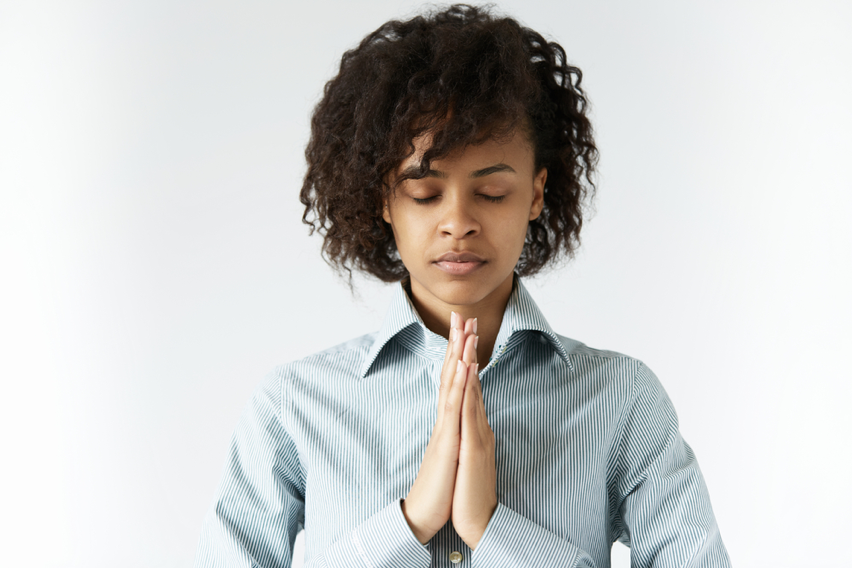The Core Foundations of Real Love and True Intimacy – Part 6: Gratitude


We’ve talked about several of the core foundations of love and intimacy, that I have outlined in this series: vulnerability, trust, courage, self-awareness, and kindness.
However, one more remains to complete the solid foundation for the basis upon which we can expand our ability to experience the many benefits of being in a loving relationship.
It may sound trite to say “count your blessings every day.” Appreciating what you have and the giving and receiving of gratitude doesn’t seem like it would constitute a core piece having meaningful and deep connections in relationships.
But in fact, it is vital. So much so that Cicero was quoted as saying that, “Gratitude is the parent of all other virtues.”
One of the most painful dynamics I see that causes so much suffering between people is the lack of gratitude from one person to another. Lack of even a small amount of gratitude can leave someone feeling discounted, sad, inadequate, unappreciated, and unworthy. These are painful emotions when we don’t sense that we are valued.
If you look around at others and really pay even a bit of attention, it is easy to see that people who are in touch with feeling gratitude tend to be much happier in life. It’s not that they don’t experience challenges in their lives. They do. What helps them through the inevitable ups and downs of life is that they are mostly anchored in a general sense of deeply felt appreciation for what they do have. In short, they are grateful.
What is gratitude?
The most basic definition has gratitude as the quality of being grateful and to show appreciation. However, Harvard Medical School defines gratitude as, “a thankful appreciation for what an individual receives, whether tangible or intangible. With gratitude, people acknowledge the goodness in their lives … As a result, gratitude also helps people connect to something larger than themselves as individuals – whether to other people, nature, or a higher power.”
We have all heard the pithy comment “have an attitude of gratitude.” In addition to the intrinsic benefits of feeling and expressing gratitude, and the benefits to others, there are health factors (spiritual, emotional and physical) that show the importance of how being thankful in life can affect your overall well-being.
So clearly gratitude can affect us in deep and powerful ways. Here are a few of the ways that gratitude can have an overall effect on our well-being.
Physical Health
According to a 2012 study published in Personality and Individual Differences, grateful people experience fewer aches and pains and report feeling healthier than other people. The study also found that grateful people are also more likely to take care of their health. They exercise more often and are more likely to attend regular check-ups, which is likely to contribute to further well-being and longevity.
Additionally, recent research performed in 2015 showed that heart failure patients who completed gratitude journals showed reduced inflammation, improved sleep, and better moods. The practice of gratitude dramatically reduced their symptoms of heart failure after only 8 weeks.
Self-Esteem
A 2014 study published in the Journal of Applied Sports Psychology found that gratitude increased athletes’ self-esteem, an essential component of optimal performance.

Just think about it…Having a practice of gratitude is a great way to feel better about yourself. When you are present to the good things in your life it can help build your confidence and sense of self-esteem because being present to these good things in life can put you in a better frame of mind. It forces you to see the positive aspects of your life.
In another study of gratitude in young adults (published in Personality and Individual Differences) showed gratitude created significantly negative effects on depression because the practice of gratitude has a direct effect on one’s self-esteem.
Mood
When we are depressed, we tend to focus on our negative feelings. Being present to the good things in our life helps to counteract the downward spiral we experience with anxiety and depression.
Grateful people experience more sensitivity and empathy toward other people and a decreased desire to seek revenge according to a 2012 study by the University of Kentucky.
When you focus on the positive feelings and the things that are good in your life it helps improve your outlook and lighten your mood.
Relationships
It is not uncommon for one of the main complaints I hear from my clients is that their partner “isn’t grateful” for who they are or what they do for them. Lack of felt and expressed gratitude is one of the top 5 reasons I’ve seen relationships falter and sometimes fail.
For some, this may have brought them to the end of their rope and they now feel hopeless that anything can get better. That has led them to reach out to me where we talk about it and see how their relationship can be salvaged.
Remember at the beginning of the relationship how you were so loving and considerate with your partner? How when they surprised you with a coffee or a chocolate bar, you gushed with gratitude and thanks? Then as the relationship progressed, those surprises happened less, and so did the gushing of thanks.

But did the gratitude have to go away? There are many, many things in a relationship that one can be thankful for, even if not obvious. For instance, I’m eternally grateful that every morning my wife wishes me a great day and tells me she loves me. I, of course, say the same. I am deeply grateful for her taking the time to do that small thing for me. And I let her know it. It’s one of the “little things” that keep our relationship (and lots of others) healthy!
Focus on the positive
Your mindset is a habit. And like all habits, there are good ones and not-so-good ones. Focusing on all the ways that person has wronged you and how horrible they are can be an exhausting and relationship-damaging habit. Whether or not your partner is even aware of what they are doing really does matter.
Yes, you need to address their behavior, however, you also have the opportunity to look differently at the environment and consciously seek the positive things they are doing as well! If you are constantly looking for the “bad” that’s what you’ll likely find.
And, other than being in a chronically abusive situation, if you spend more of your time seeking out and focusing on the good, that is more likely what you will find. You may be familiar with the adage, “You get what you measure.” Well, the same is true with relationships.
Maybe one (or both) of you aren’t showing gratitude in the best way
I always recommend that people ask their significant others, “What is the best way I can express my love and gratitude for you?” This will help you both let your partner know what they value most in terms of their love language. Many couples have found this tool helpful in finding ways to express gratitude of their partner.

Ways to Practice Gratitude So You Will Feel Better
There is an old saying: “Unexpressed gratitude doesn’t do anybody any good.”
Let’s explore this in more detail.
Having a gratitude practice can be challenging at first, especially if you’ve had a negative mindset of late or are suffering from anxiety or depression. But the important thing is to start and be dedicated to creating this new habit. It gets better with practice.
So, let’s put this into action! How can YOU show genuine gratitude to others?
Say Thank You
Specifically, a blanket “Thanks” or “You’re great” doesn’t always get the job done. When showing heartfelt gratitude, be specific about what you’re thankful for, and how it affected you.
For example, and using the person’s name, simply say, “I want to thank you (their name) _______________ so much for taking out the trash. It’s a job I really hate doing and I’m glad you helped with that.”
Do something unexpected
It could be a small gift, lunch brought to them when they are “working in” that day or offering to do a task for them they don’t particularly love (clean the toilets, anyone?). These small gestures let someone know you’ve been thinking of them and you appreciate how they help you. In only a few keystrokes, you can send a short text telling your SO how grateful you are that they are in your life. It could make their day!

Smile, reach out and touch
Smiling is totally underrated! A sincere smile with eye contact can convey a lot to the person on the receiving end. When your smile accompanies your words, it gives them more impact and fosters a connection between you and the other person. In today’s fast-paced world, taking a minute to really smile, look the person in their face, make eye contact, and then sayings “thank you” makes a big impact!
Write it out
Many people are in the practice of listing out the things they are thankful for each day. Some enjoy starting their day getting grounded in their gratitude and others find it is helpful to end their day and fall to sleep counting their blessings. Find what works best for you. But the most important thing is to write it down (start with 3 or go to 20), just start! Soon you will see that there is a lot in your life (day after day) for the good things in your life.
Walk in Mindfulness
To cultivate gratitude, you can always take a walk outside and be present to all that surrounds you.

It’s a great exercise of the senses to see, feel, smell all that’s around you and to give thanks for the ability to do that and what sensations you are experiencing.
Be Thankful for Who You Are
Whatever you may be going through (or have gone through), you are still here. You are worthy of love and goodness. You’ve been on your journey and have learned lessons. So that in itself is something to be glad for.
There are very specific ways of thinking and behaving that couples need to learn in order to both express love and receive love. Knowing these tools is absolutely foundational to enjoying happy and healthy relationships. This is the final article in my new six-part series: The Core Foundations of Real Love and True Intimacy.
You can find other posts here:
Introduction
Part 1: Vulnerability
Part 2: Trust
Part 3: Courage
Part 4: Self-Awareness
Part 5: Kindness
Part 6: Gratitude
I hope that you have found this article and this entire series helpful. Certainly, the ability to feel and express gratitude is one of those most important core foundations we have to help us and our loved to experience real love and true intimacy. If you need a little extra help discovering gratitude in your life, in your relationship or at work, please feel free to contact me for a free 15-minute phone consultation. I have some great strategies that can help!















